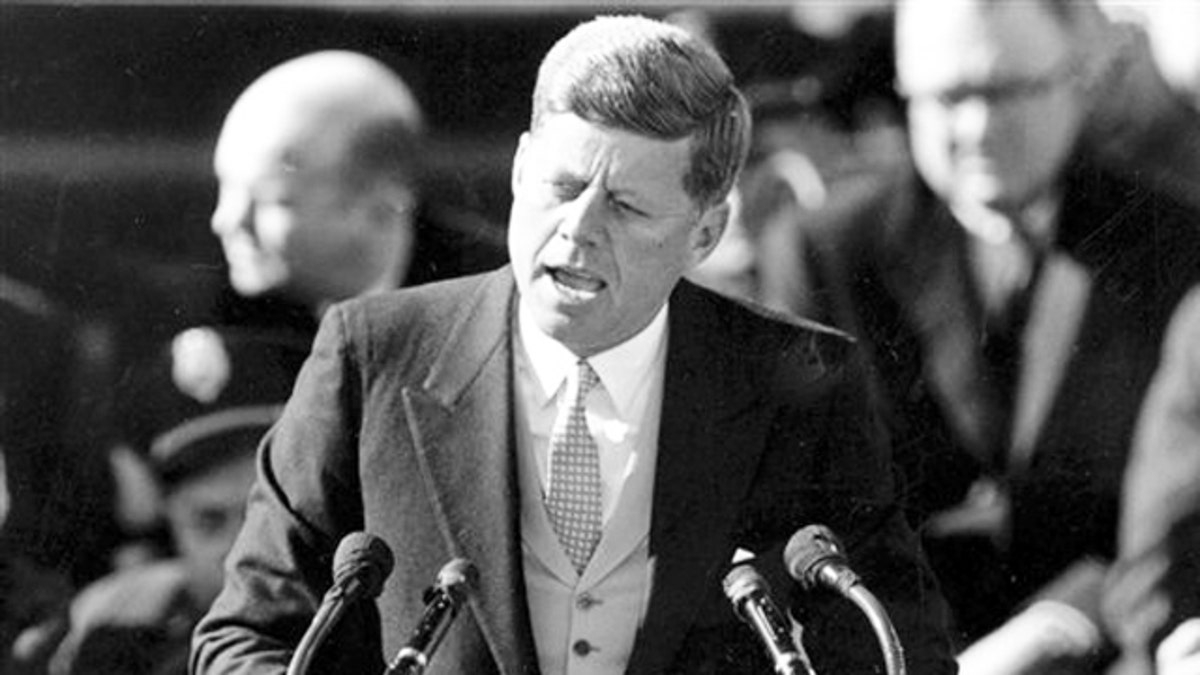
Please Follow us on Gab, Minds, Telegram, Rumble, Gettr, Truth Social, Twitter
Presidential inaugurations show the world America’s orderly, peaceful transfer of power, which is the hallmark of America’s system of government.
Because the United States was born after a bloody revolution, the presidential inauguration ceremony is a tangible, visible picture of a government based on representation, not royalty. Americans said goodbye to "God save the king" in 1776 to embrace "We the people of the United States."
Ronald Reagan, 1981: "In the eyes of many in the world, this every-four-year ceremony we accept as normal is nothing less than a miracle."
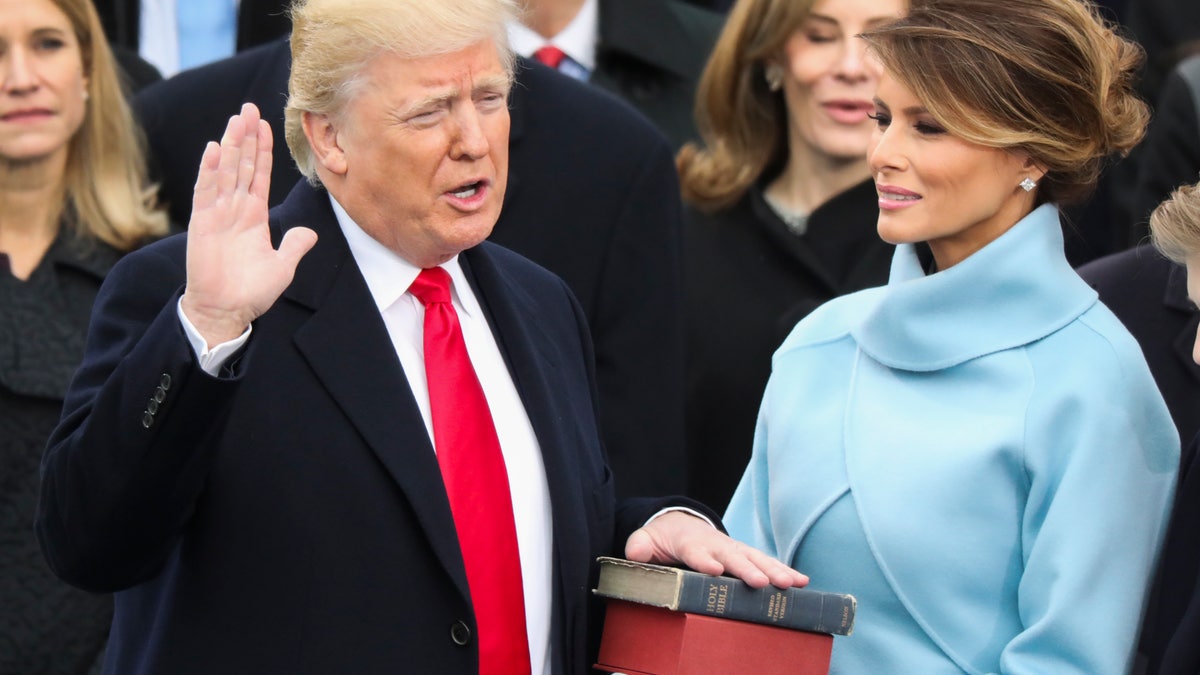
To signal they can’t perform the responsibilities of president alone, presidents often show reverence for God in their inaugural addresses. For his oath of office, George Washington underscored his commitment by placing his left hand on a Bible opened to Genesis 49-50, which featured a transition of power after the death of Jacob. Washington held up his right hand and recited the oath. After he finished, he kissed the Bible and bowed.
George Washington, 1789: "No people can be bound to acknowledge and adore the invisible hand, which conducts the affairs of men more than the people of the United States."
Franklin Roosevelt, 1933: "In this dedication of a nation we humbly ask the blessing of God."
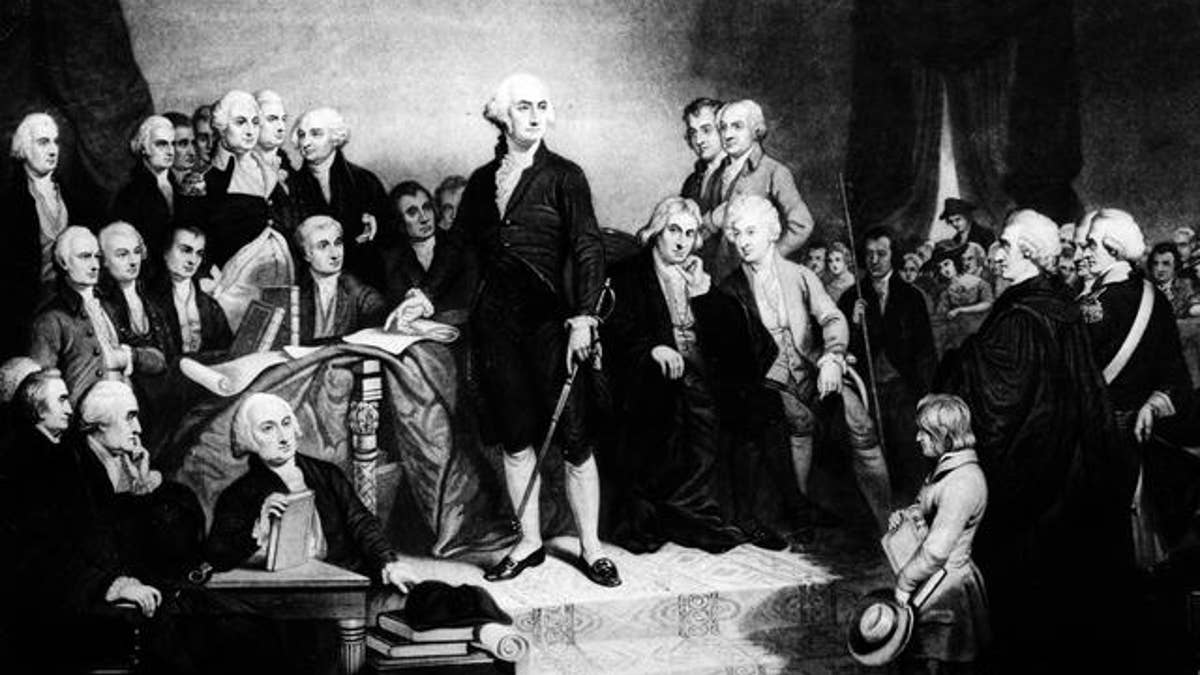
The presidential inauguration is the literal coming together of the government’s three branches. The president takes an oath from the Supreme Court’s chief justice on the steps of the Capitol, which houses Congress.
In one moment, the three branches of government – executive, judicial and legislative – are on display, united under the U.S. Constitution. Often presidents issue a call to unity, to put the "united" back into the United States after a contentious campaign.
Abraham Lincoln, 1861: "We are not enemies, but friends... The mystic chords of memory... will yet swell the chorus of the Union, when again touched... by the better angels of our nature."
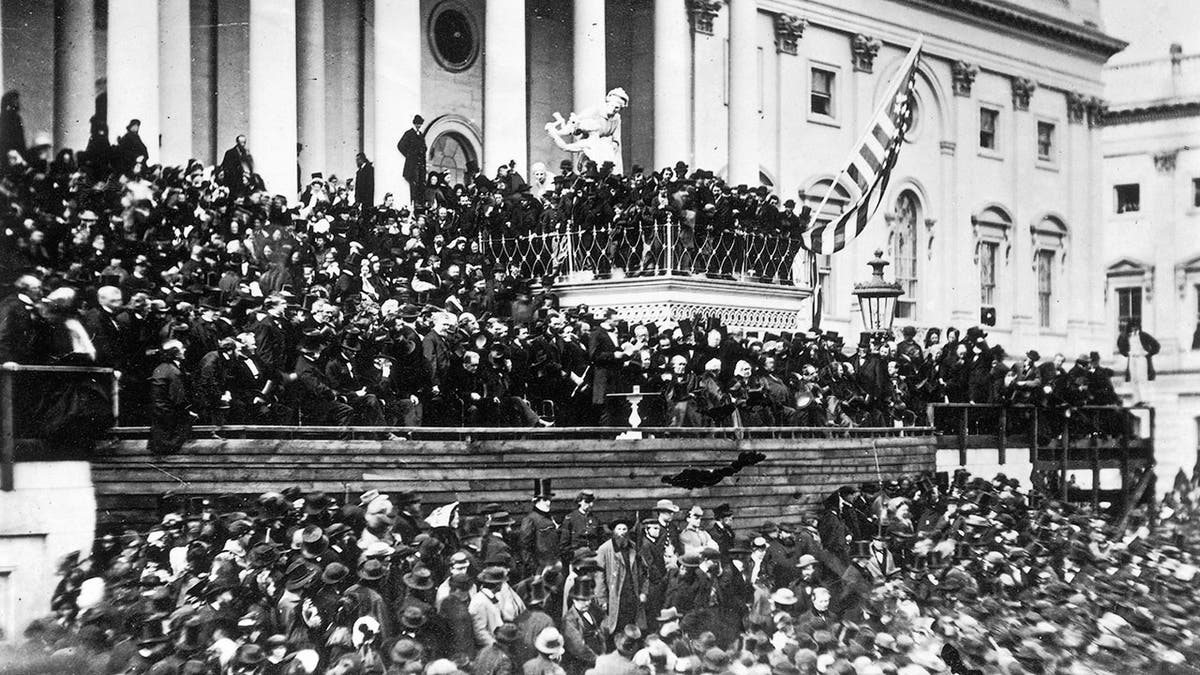
John F. Kennedy, 1961: "We observe today not a victory of party, but a celebration of freedom."
Presidents usually use their inaugural address to remind Americans of the nation’s past, particularly the nation’s founding and the most recent past that led to their inauguration.
Bill Clinton, 1993: "When George Washington first took the oath I have just sworn to uphold, news traveled slowly across the land by horseback and across the ocean by boat. Now, the sights and sounds of this ceremony are broadcast instantaneously to billions around the world."
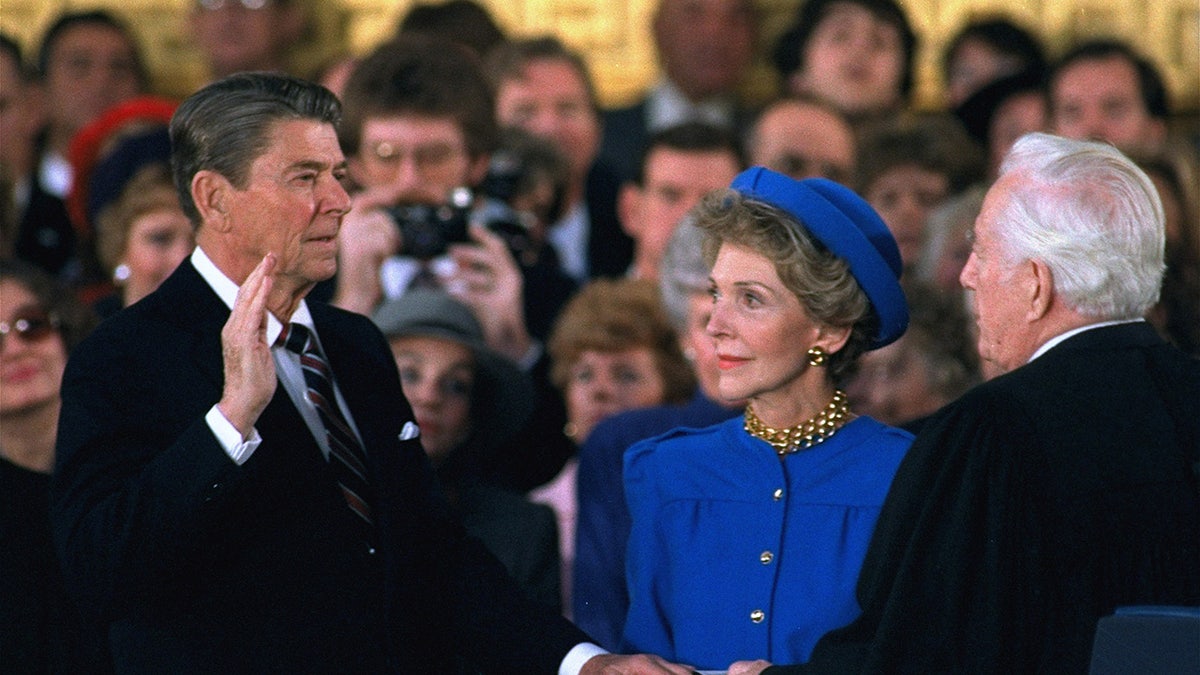
With first lady Nancy Reagan at his side, President Ronald Reagan is sworn in during ceremonies in the Rotunda beneath the Capitol Dome in Washington on Jan. 21, 1985. The ceremony was forced indoors due to the record cold. ( AP Photo/Ron Edmonds)
George W. Bush, 2005: "From the day of our Founding, we have proclaimed that every man and woman on this earth has rights, and dignity, and matchless value, because they bear the image of the Maker of Heaven and Earth."
An incoming president uses his inaugural address to point Americans to the future. Unlike the raucous nature of a campaign event, the president will paint a big picture using broad strokes to explain the policies he plans to implement. He uses memorable, poetic rhetoric to inspire Americans and give them hope for the days ahead under his administration.
John F. Kennedy, 1961: "And so, my fellow Americans: ask not what your country can do for you—ask what you can do for your country."
